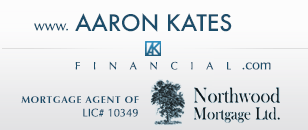Amortization: This process combines interest and principal into an established schedule of payment installments, instead of simply paying off interest at the onset, which initially assists homebuyers in building equity in their home/
Appraisal: A requirement that allows prospective homebuyers to obtain a loan from a bank or private lender to buy a land, house, cottage or condominium.
Assessed Value: This is how much a home is worth according to a public tax assessor that makes this determination in order to figure out the correct amount a homeowner owes to the city or state, in which the home is situated.
Buyer’s Agent: This is the agent that represents the buyer in the home-buying process. The agent that represents the buyer seller is known as the listing agent.
Cash Reserves: These are the monies left over for the buyer after covering the down payment and closing costs.
Closing: Closing refers to the meeting that occurs, during which the sale of the property is finalized. At closing, both buyers and sellers sign the final documents to complete the sale of the property. Buyer makes submits the downpayment and pays for closing costs.
A Real Estate Lawyer should be hired to facilitate the process of closing the transaction.
Closing Costs: In addition to the actual price of a house or condominium there are also closing costs, which typically comprise approximately between two and five percent of the purchase price; inclusive of the down payment. Examples of closing costs include the mortgage processing fees, title insurance and excise tax; as well as legal fees and costs for disbursements to complete the sales transaction; inclusive of title search and transfer of ownership on title; by way of Deed for Property.
Adjustable-Rate and Fixed Rate Mortgages: There are generally two types of standard mortgages: fixed rate and adjustable rate mortgages. An adjustable-rate mortgage requires that the interest rate charged on top of the principal amount due change during the lifespan or term of the loan. A fixed-rate or regular mortgage requires that the interest rate remain constant throughout the entire term of the mortgage. A fixed rate mortgage
must have a locked-in set interest rate that will not fluctuate during the term of the loan.

